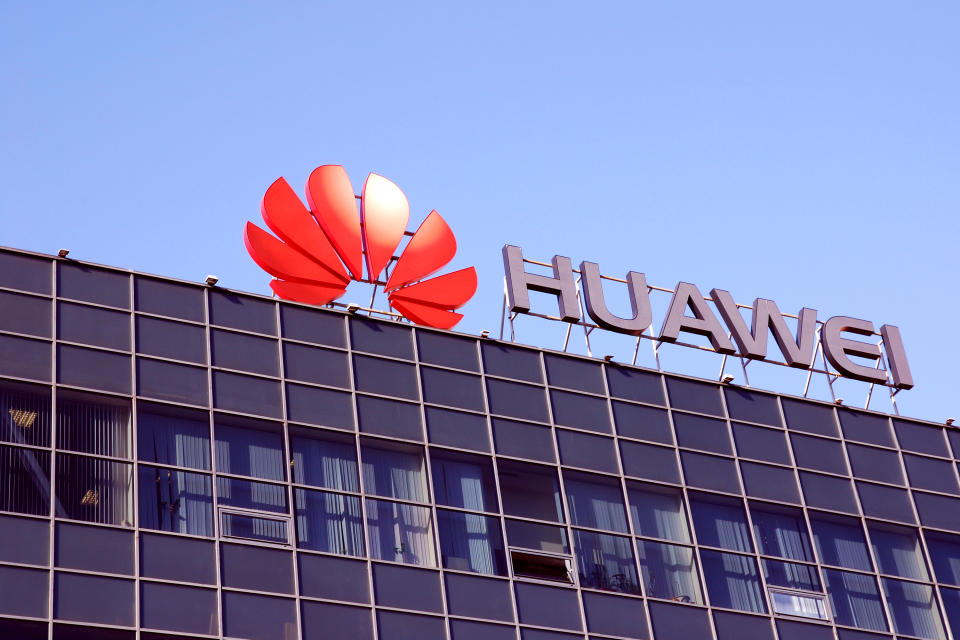Canadian exports to China will continue to dip regardless of Huawei, Meng Wanzhou decisions: experts

Statistics Canada said Canadian exports to China plunged 16 per cent in 2019 to $24.4 billion after the arrest of Huawei’s CFO Meng Wanzhou, and trade analysts expect that decline will continue even after a decision regarding the telecommunications giant’s 5G technology, or its senior executive.
Total exports to China in 2018 totalled $29.1 billion, according to StatCan. The annual decline in exports to China is a first since 2014, StatCan said.
Vancouver authorities arrested Meng in December 2018, complying with a U.S. request for her to be held for extradition. Following that, China arrested two Canadian diplomats and halted imports of Canadian agricultural products for months.
Meng’s extradition hearings began in January 2020.
Mark Warner, a Canadian and American trade lawyer at MAAW Law, said in an interview he doesn’t see exports rising so long as issues surrounding Meng and Huawei continue.
In a scenario where the judge presiding over Meng’s case sides in her favour but Justice Minister David Lametti appeals to the decision, Warner predicts exports would continue to fall.
“I think there are probably limits to how far it can drop further, but I don’t see them going back up,” Warner said. “As long as [Meng has] an ankle bracelet on her in Vancouver, I think the Chinese are going to go hard on Canada.”
He added that Canada will have a “price to pay,” even if Meng is not extradited, because of the impending decision on whether Canada will allow Huawei to participate in 5G networks. The federal government is still reviewing whether telecom carriers in the country will be allowed to use its equipment.
For months, the U.S. has lobbied Canada and other allies to ban the use of Huawei equipment, alleging the company uses backdoors to spy on citizens. Huawei denies the allegations, which are yet to be proven in court.
“It might not be as bad as when Meng Wanzhou was arrested, but I think that the Chinese will want to send a message to Canada if we were to follow the Americans on 5G,” he said.
Dan Ujczo, an international trade lawyer at Dickinson Wright, said issues surrounding Huawei are “part of the larger triangle of Canada, China, and the U.S.,” and said Canadian exports “may continue to dip” because of Phase I of the U.S.-China trade deal that was signed in January.
“An overall slowdown in China as a result of the trade tensions, internal debt issues, and now the coronavirus will likely lead to [continuing] slippage in Canada’s exports to China,” he said in an email.
As part of the U.S.-China trade deal, it has been reported that Canada could take a hit as a result of China favouring U.S. suppliers for products including agriculture, seafood, forest, and automotive products.
Gary Hufbauer, a senior fellow at the Peterson Institute for International Economics, said in an interview that a 16 per cent drop is “pretty big” and attributed it to many factors aside from the arrest of Meng and an impending decision on Huawei.
He said that Canada will likely take more of a hit if it decides to side with the U.S. on banning Huawei.
“You may be sure that China will do something, which will be interpreted by people in the know, as retaliation,” he said. “How big will it be? I don’t know. It could be a couple per cent of Canada’s export to China, who knows.”
Hufbauer said Canadian exports will also take a hit if the judge agrees with prosecutors to extradite Meng to the U.S.
“If instead, she’s sent across the border in a black van, how you transport extradited individuals, you may be sure there will be more penalty. That’s a very high-profile case,” he said.

 Yahoo Sports
Yahoo Sports 